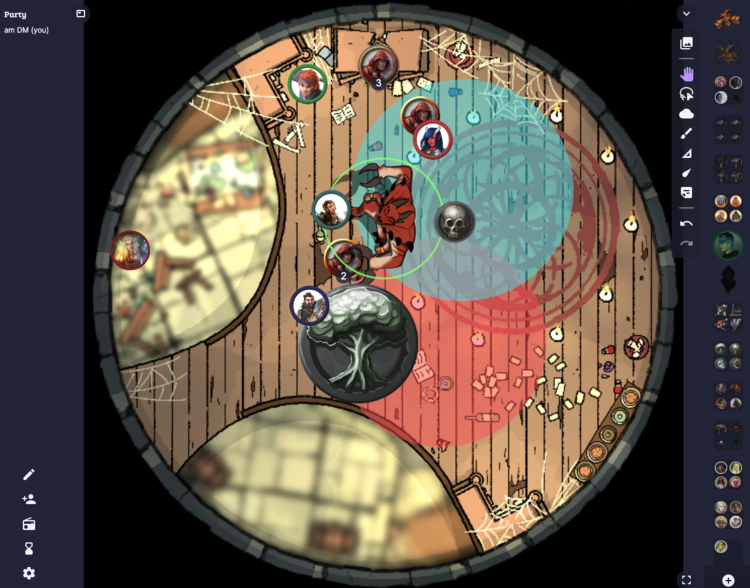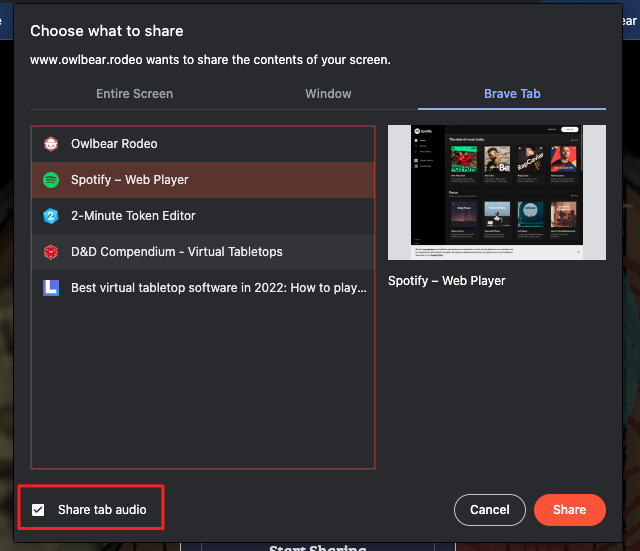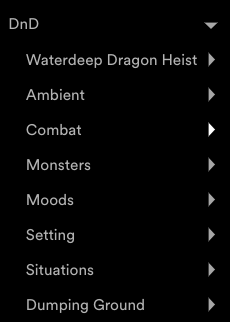Getting started with online play

Getting together in person for a recurring game can be a difficult task. Other priorities like work, children, partners, etc. begin to take priority. This is especially true for in-person games. Not only do you have the time of actual play, usually between 3 and 4 hours, but you have travel and the pre/post-game catchup and wind down. Getting away from life for 6 or 7 hours each week is difficult for anyone.
Luckily we live in an age where technology enables us to remain connected. While playing online doesn’t feel quite the same as in-person, the important thing is that you are playing. At the end of the day, what else matters?
It is also easier to fit into a busy schedule. Being a father, there is no way I could make a weekly in-person game. However, playing online has made that completely doable. As soon as the kids go down, I can jump on and get started.
With the freedom of online play comes a litany of options when it comes to tools. At the end of the day, it is all personal preference. When my group first started playing at the start of 2020, we all jumped on Google Hangouts and did everything theater of the mind. Since then, we have added tools to our stack, ditched some that didn’t work, and continue to hone in on what works for us.
Below is what I will call our "game stack". This is what works for us. Use this as a starting point to find out what works for you.
Discord
We use Discord as the hub for most things. We’ve had good experiences with their video capabilities. We also use the channels and categories to keep everything organized and available.
The most important categories here are the Voice Channels and the ones dedicated to your campaign. For the campaign section, we maintain three channels.

- Game Journal: Used for campaign-specific discussion, note sharing, and a place to drop recaps.
- Maps: The only things posted here are... you guessed it, maps. This is kept separate from other handouts because they are frequently referenced.
- Handouts: Anything else that I might give my players. It may be a puzzle, an invitation, or lost spell notes. The important thing is that they are all kept available to the group when they need them.
When it comes to Voice Channels, we have two.
- General: This is where the vast majority of the gameplay happens.
- Breakout Room: Because we aren’t sitting around a table, I can’t just get up and whisper in someone’s ear if I need to share a secret. The Breakout Room serves this purpose. It is generally used for only short periods of time to share private information with a player or two.
If you want to use this setup, we’ve created a Discord Server Template to help get you started.
Owlbear
There are many options when it comes to running combat online. The popular list includes Roll20, Fantasy Grounds, and Foundry VTT. While the above list is great and each comes with a litany of bells and whistles, I have found that less is more when I am running a game. Also, in order to take advantage of everything the above offers, you have to invest a decent amount of time to ensure everything is working as you would expect.

This is why I gravitated toward Owlbear.rodeo. It's easy to upload and organize maps and tokens (I get my tokens from Token Hoard or 2-Minute Tabletop). It provides all of the essentials such as Fog of War, pointers, and the ability to draw on the map. And it is completely free.
All you have to do is share your game’s unique URL with your party and you are good to go. I have the link pinned in the #helpful-links channel on our discord to make it easy for my players to find it.

As an extra bonus, it also allows you to cast your music through its web UI. After clicking the little radio icon in the bottom left corner, you then choose to share your browser tab. Make sure that you have Share tab audio selected and then hit the Share button. Now any music you play on that tab, whether it is from Spotify, YouTube, or some other service is broadcast to everyone who has joined your game. Since this is separate from Discord and your video chat, there is no conflict in the audio channels. And if a player doesn’t want to hear the music, it’s easy enough to mute a tab.
Spotify
Speaking of music, I tend to use Spotify more than I do YouTube. I feel that I have an easier time finding songs that fit what I’m looking for with Spotify’s search than I do on YouTube. Additionally, I feel that Spotify’s playlist feature is more streamlined than YouTube’s.

I have specific playlists for important scenes which I will file away under the campaign title (in this example Waterdeep: Dragon Heist). But then I have general categories that let me quickly set the mood depending on what comes up.
These are broken up into organized sections:
- Ambient
Combat
- Includes playlists for Boss fights, epic battles, tough encounters, and standard brawls
Monsters
- I use these if I want to set a specific tone based on a creature
Setting
- Music is meant to channel the environment of being in a city, tavern, the Fey, etc.
Dumping Ground
- This is where I throw anything and everything that I come across that may be applicable. I then come back later and organize it.
DnD Beyond
The last piece that forms the foundation of our game is DnD Beyond. This is an invaluable resource for when I need to quickly look up spells, items, or details about the campaign I haven’t bookmarked physically. The players also maintain their character sheets on DnD Beyond. Most players also print out their character sheets, but having them in a spot I can reference is incredibly helpful. I can see what spells they have prepared. This way when they cast cast those spells I know what they do.
I have also heard a lot of positive feedback from the players. This was especially true when everyone finally loaded their character into the platform and many found abilities they had access to that they hadn’t known about.
Additionally, if you pay (or pay as a group) you can share the materials you have purchased with everyone in the campaign. This opens the doors to all of the DnD content because it makes things more affordable (if you split the cost) and accessible.
Wrapping Up
Our game has evolved beyond what I’ve listed above. But these tools will help you establish your foundation. What other tools do you recommend? Reach out on X at @withadvantageio.

Member discussion